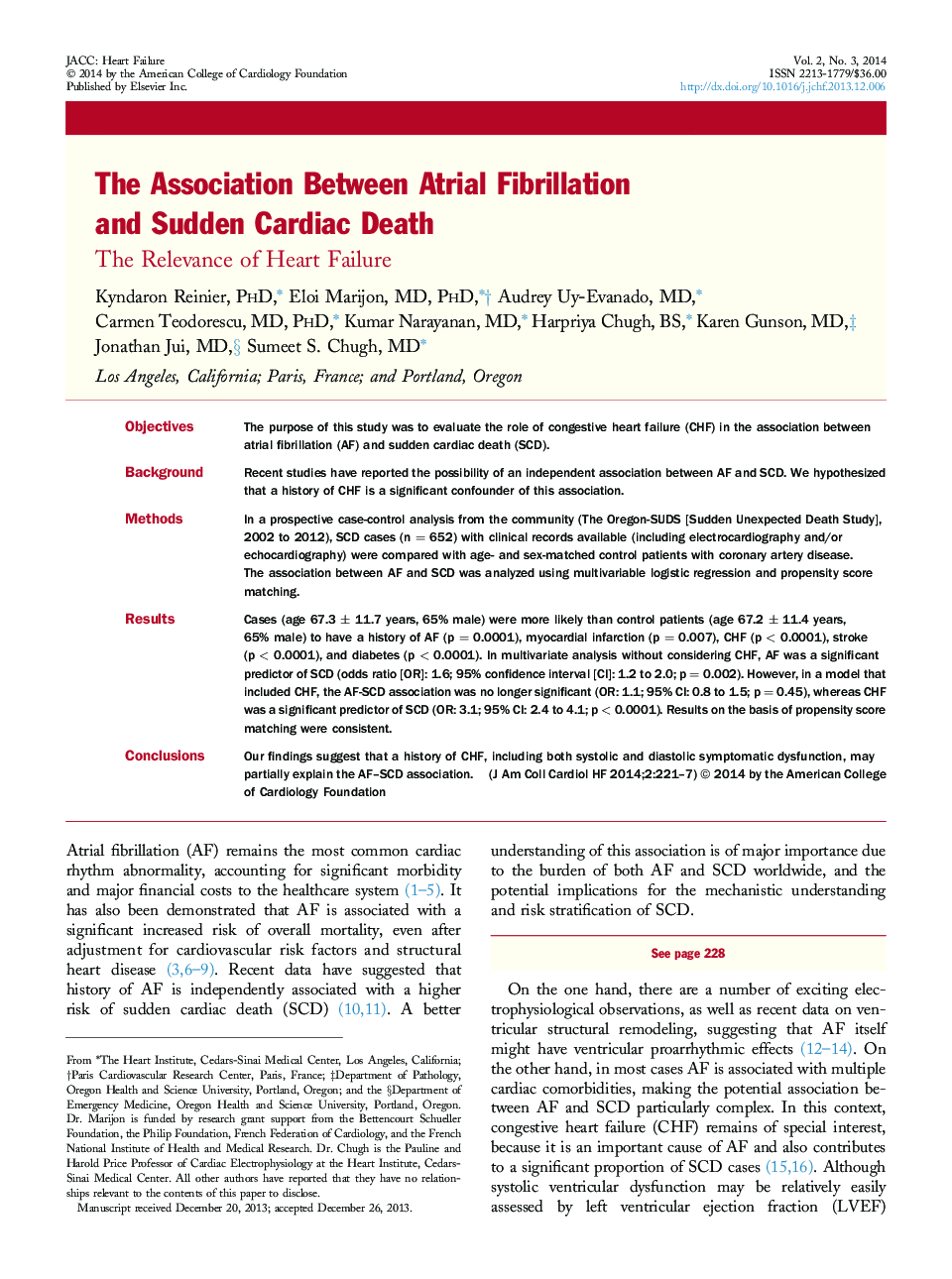| Article ID | Journal | Published Year | Pages | File Type |
|---|---|---|---|---|
| 2942500 | JACC: Heart Failure | 2014 | 7 Pages |
ObjectivesThe purpose of this study was to evaluate the role of congestive heart failure (CHF) in the association between atrial fibrillation (AF) and sudden cardiac death (SCD).BackgroundRecent studies have reported the possibility of an independent association between AF and SCD. We hypothesized that a history of CHF is a significant confounder of this association.MethodsIn a prospective case-control analysis from the community (The Oregon-SUDS [Sudden Unexpected Death Study], 2002 to 2012), SCD cases (n = 652) with clinical records available (including electrocardiography and/or echocardiography) were compared with age- and sex-matched control patients with coronary artery disease. The association between AF and SCD was analyzed using multivariable logistic regression and propensity score matching.ResultsCases (age 67.3 ± 11.7 years, 65% male) were more likely than control patients (age 67.2 ± 11.4 years, 65% male) to have a history of AF (p = 0.0001), myocardial infarction (p = 0.007), CHF (p < 0.0001), stroke (p < 0.0001), and diabetes (p < 0.0001). In multivariate analysis without considering CHF, AF was a significant predictor of SCD (odds ratio [OR]: 1.6; 95% confidence interval [CI]: 1.2 to 2.0; p = 0.002). However, in a model that included CHF, the AF-SCD association was no longer significant (OR: 1.1; 95% CI: 0.8 to 1.5; p = 0.45), whereas CHF was a significant predictor of SCD (OR: 3.1; 95% CI: 2.4 to 4.1; p < 0.0001). Results on the basis of propensity score matching were consistent.ConclusionsOur findings suggest that a history of CHF, including both systolic and diastolic symptomatic dysfunction, may partially explain the AF–SCD association.
